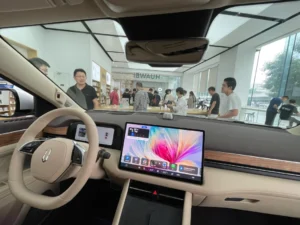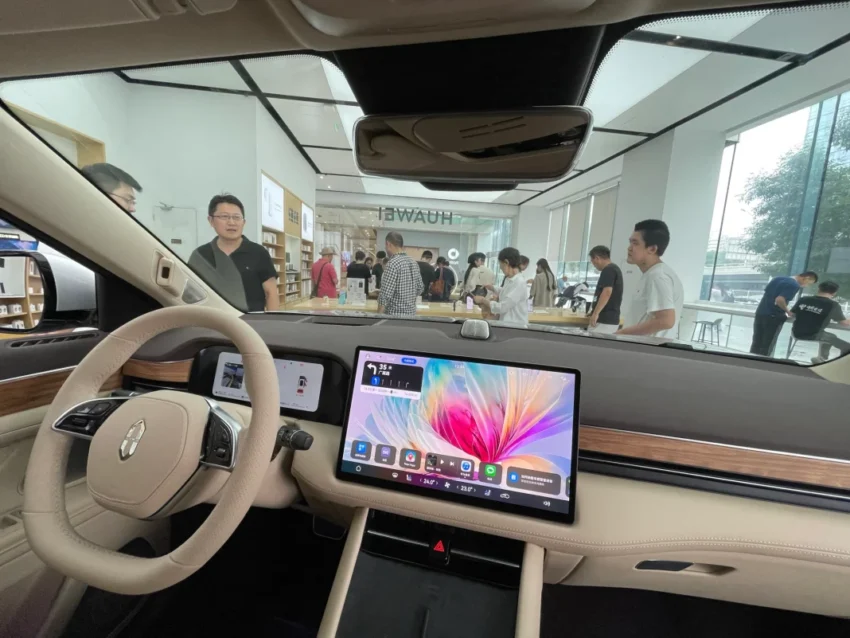Aito, a Chinese electric vehicle manufacturer, is making headlines for a different reason than other auto brands—customer happiness. Aito’s recently updated M7 SUV, which is supported by tech giant Huawei, is so well-liked that production is having trouble keeping up with demand. But what distinguishes the brand is its ground-breaking method of dealing with clients: offering compensation for delivery delays.
Aito might be a strong Tesla competitor in China soon enough
Aito guarantees a 200-yuan ($27.35) refund, up to a maximum of 10,000 yuan, for each day an M7 buyer waits past the planned delivery. Despite the fact that this may just seem like a publicity ploy, the choice represents a major shift in the intensely competitive electric car sector. Aito’s strategy has both immediate and long-term effects in a market where missing a deadline can result in losing a potential client to rivals like Tesla, Li Auto, or Nio.

Keeping impatient customers loyal to the brand is the immediate advantage. However, the move’s long-term effects are what really intrigue me. In a sector where technology and performance metrics are frequently highlighted, Aito is establishing a precedent for consumer-focused business practices. In essence, Aito seems to be stating that the customer experience is as important to the success of the car. This may signal a shift in how other firms promote electric cars, putting more emphasis on the purchasing experience rather than simply the vehicle itself.
Aito has thrown down the gauntlet to rival EV goliaths with over 60,000 orders for the M7 in just one month, especially as it aims to fulfill China’s projected 2023 sales target of 8.5 million electric cars. Huawei’s HarmonyOS and the M7’s 1,300-kilometer driving range demonstrate the brand’s potential in both technology and customer support. Even though it’s still early, this new strategy may play a significant role in how Aito navigates the Chinese electric car market.
